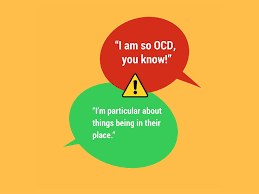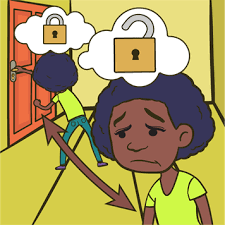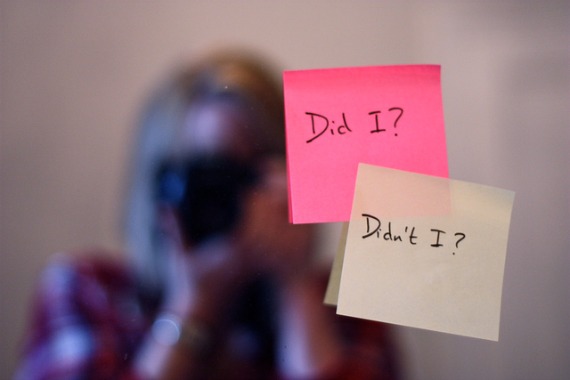OCD is an acronym for Obsessive-compulsive Disorder. It is a mental disorder that causes individuals to experience recurrent, unwanted thoughts (obsessions) and urges to engage in specific behaviors or activities (compulsions) to reduce anxiety. There are different types of OCD, with checking OCD being one of them. In this blog post, we will be discussing checking OCD in detail- its signs, symptoms, and treatment options.
Contents
Understanding Checking-OCD

Checking OCD is categorized as an anxiety disorder because it involves fear and worry. People with checking OCD feel the need to check things repeatedly to ease their anxiety. This can include anything from making sure the stove is turned off multiple times before leaving the house, to checking the locks on doors, to re-reading texts or emails multiple times before sending them.
Degrees in Checking OCD
There are three degrees of checking OCD: mild, moderate, and severe.
- Mild OCD generally has less impact on a person’s life and can be managed with simple lifestyle changes.
- Moderate OCD may require some cognitive behavioral therapy or medication in addition to lifestyle changes.
- Severe OCD can be debilitating and often requires intensive treatment.
Types of Checking-OCD
There are four types of checking OCD: mental, physical, verbal, and functional.
- Mental checking includes things like going over a to-do list in your head multiple times or mentally reviewing what you did that day.
- Physical checking includes things like repeatedly checking the locks on doors or checking the stove to make sure it’s turned off.
- Verbal checking includes things like saying a certain word or phrase over and over again.
- Functional checking includes things like making sure everything in your house is in its proper place.
Is It Treatable
Checking OCD is treatable with a combination of lifestyle changes, cognitive behavioral therapy, and medication.
Studying Checking-OCD Symptoms

Recognizing the signs of checking OCD is the first step in getting the help you need. Several symptoms can indicate someone has to check OCD. These include:
Obsessions Involved In Checking OCD
Obsessions are the recurrent, unwanted, and intrusive thoughts that cause anxiety in people with checking OCD. People with this condition may have any number of obsessions, but some are particularly common. These include:
- unwanted sexual thoughts
- need for symmetry or order
- fear of contamination or dirt
- fear of harm coming to oneself or others
- doubts about actions (did I turn the oven off?)
Compulsions Under Checking OCD
Compulsions are the behaviors or mental acts that someone with this condition engages in to relieve their anxiety. These can vary greatly from person to person, but some common compulsions include:
- re-reading texts or emails
- checking locks multiple times
- cleaning surfaces over and over
- arranging objects in a certain order
- excessive hand-washing or showering
NOTE: If you think you may have checked OCD, talk to a mental health professional. They can help you understand your symptoms and develop a treatment plan.
Questionnaires To Diagnose Checking-OCD
Several different questionnaires can be used to diagnose this condition. Some of the most common include:
- The Padua Inventory (PI)
- The Obsessive-Compulsive Inventory (OCI)
- The Yale-Brown Obsessive Compulsive Scale (Y-BOCS)
- The Obsessive-Compulsive Inventory for Children (OCI-C)
Predicting Repercussions of Checking-OCD

People with this condition can lead to significant interference in daily life as people with this type of OCD go to great lengths to avoid their triggers.
Personal Life: The personal life of someone with this condition can be very difficult. The disorder can cause relationship problems, as well as strain on family and friends. For example, if they are worried about harming others, they may avoid using sharp objects.
Social Life: People with this condition often have difficulty in social situations. The disorder can make it hard to relax and enjoy activities with friends or family. trigger their anxiety. This can lead to social isolation and difficulty maintaining relationships. For example, if they are worried about contamination, they may avoid shaking hands or touching door handles.
Professional Life: This OCD can also interfere with work or school. The disorder can make it hard to concentrate or focus on tasks. People with this condition may avoid work or school altogether if they feel that their environment is not safe. This can lead to job loss or problems with grades and attendance.
Conclusion
Checking OCD is a serious mental illness that you should not take lightly. If you or someone you know is struggling with this disorder, please reach out for help. Furthermore, there are many resources available to those who need them. With treatment, people with OCD can learn to manage their anxiety and live normal, productive lives. If you’re searching for an affordable, convenient, and effective treatment for checking OCD, consider Mantra Care.
If you are looking for affordable Online OCD Counseling MantraCare can help: Book a trial OCD therapy session


